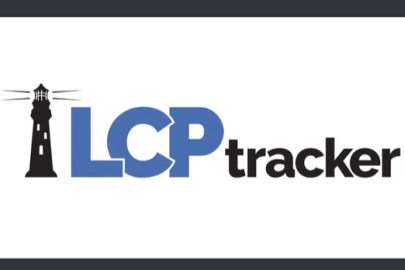All projects funded, in whole or in part, by the Infrastructure Investment and Jobs Act (IIJA) that involve construction, alteration or repair are required to follow Davis-Bacon Act (DBA) standards (Section 41101 of the Infrastructure Investment and Jobs Act). The Davis-Bacon Act helps ensure that federally funded projects prioritize workers and protect communities by upholding local wage and labor standards. That includes the requirement that award recipients pay at least the prevailing wages to workers performing project construction. It also includes two regular tracking components – weekly payroll tracking and semiannual reporting – to ensure compliance.
-
 Employers subject to Davis-Bacon requirements that have a non-weekly pay system can consider several options for compliance.
Employers subject to Davis-Bacon requirements that have a non-weekly pay system can consider several options for compliance. -
 Employers subject to the Davis-Bacon and Related Acts must submit weekly, certified payrolls. To help employers stay in compliance and ensure the process is as easy and accessible as possible, DOE provides a free software, LCPtracker, to recipients of BIL funding.
Employers subject to the Davis-Bacon and Related Acts must submit weekly, certified payrolls. To help employers stay in compliance and ensure the process is as easy and accessible as possible, DOE provides a free software, LCPtracker, to recipients of BIL funding.
-
 Employers subject to Davis-Bacon requirements must also submit a semiannual report to DOE. This report is due every six months, by April 21 and October 21 of each year.
Employers subject to Davis-Bacon requirements must also submit a semiannual report to DOE. This report is due every six months, by April 21 and October 21 of each year.
Frequently Asked Questions
Under Section 41101 of the Infrastructure Investment and Jobs Act, all laborers and mechanics employed by contractors or subcontractors in the performance of construction, alteration, or repair work on a project assisted in whole or in part by funding made available under the Infrastructure Investment and Jobs Act must be paid wages at rates not less than those prevailing on similar projects in the locality, as determined by the Secretary of Labor in accordance with the Davis-Bacon Act.
Prevailing wages are the average wage and benefits paid to similarly employed workers in a specific region. They promote high-quality work and fair pay and help ensure that taxpayers get a good return on their investment. Applicable recipients or subrecipients awarded federal funds for construction, alteration, or repair projects are required to pay workers at least a prevailing wage, set by the U.S. Department of Labor, on a weekly basis.
DOE must:
- Determine when Davis-Bacon Act requirements apply to Infrastructure Investment and Jobs Act projects and, if applicable, ensure that appropriate clauses and wage determinations are incorporated into award documents.
- Make the initial determination regarding the applicable wage determination(s) for a project.
- Enforce Davis-Bacon Act requirements, including reviewing certified payrolls.
- Submit a semiannual report, compiled from the data provided by award recipients, to the U.S. Department of Labor.
Award recipients must:
- Ensure that laborers and mechanics are paid at least the applicable prevailing wages according to the appropriate Department of Labor wage determinations, including fringe benefits, for all hours worked on a weekly basis.
- Ensure that applicable Davis-Bacon Act clauses and applicable wage determinations are flowed down to all subrecipients.
- Maintain an accurate record of hours worked and wages paid, including fringe benefit contributions, and submit certified payrolls on a weekly basis to DOE via the free software application LCPtracker
- Complete and submit the Davis-Bacon semiannual report to DOE by April 21 and October 21 of each year.
Yes. IIJA Section 40551 provides an exception for the Weatherization Assistance Program. Under the Weatherization Assistance Program, the Davis-Bacon Act only applies to multifamily buildings with more than five units. This is the only IIJA-funded program that includes an exemption from Davis-Bacon requirements.
No. Under Davis-Bacon Act labor standards, covered workers must be paid and certified payrolls must be submitted to DOE weekly. For award recipients that are not on a weekly pay schedule, DOE has outlined several possible options for meeting compliance standards.
Additionally, DOE requires that award recipients use a free software unless a waiver is granted. This software, LCPtracker, helps to ensure the payroll submission process is as easy and accessible as possible.
Yes. Bona fide apprentices may be paid at a rate less than the applicable prevailing wage.
Additionally, an individual worker’s take-home pay may be deducted for a variety of reasons, such as child-support obligations, which could result in their hourly rate being lower than the designated prevailing wage. Please refer to 29 C.F.R. §3 before making any deductions.
To be considered a bona fide apprentice who can be paid a rate less than the applicable prevailing wage rate, a worker must be individually registered in an apprenticeship program approved by the Department of Labor’s Office of Apprenticeship or a state agency recognized by the Department of Labor’s Office of Apprenticeship.
See the U.S. Department of Labor’s Frequently Asked Questions: Protections for Workers in Construction under the Infrastructure Investment and Jobs Act for more Q&A and additional information.

